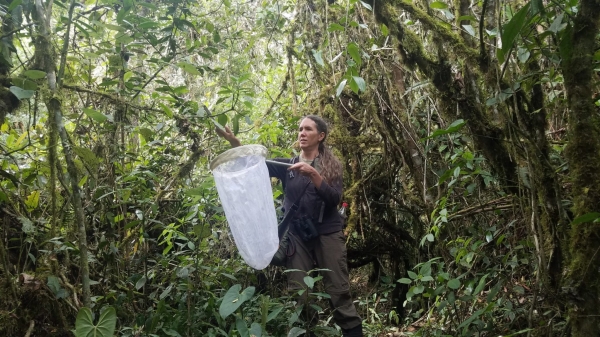Insects that are adapted to perennially wet environments, like tropical rainforests, don’t tend to do well when their surroundings dry out. New research published this Wednesday indicates they may be equally averse to heavy rainfall.
The results of an extensive five-year study conducted in Peru revealed a 50% decline in arthropod biomass following short periods of both drought and increased precipitation. One of only a few studies of this scope conducted in the tropics, the findings suggest terrestrial arthropods, a group that includes insects and spiders, will be more susceptible to climate change than previously suspected.
“Most of the time when we think about climate change, we think about warming temperatures, but rainfall patterns will change as well, which is something insects seem to be especially sensitive to,” said Felicity Newell, a postdoctoral associate and former doctoral student with the Florida Museum of Natural History. “We’re seeing that rainfall extremes can have negative effects over very short timescales.”
Read more at Florida Museum of Natural History
Image: Felicity Newell meticulously collected specimens in a variety of ways, including a method of branch-beating, shown here, to dislodge insects feasting on leaves. (PHOTO COURTESY OF FELICITY NEWELL)


